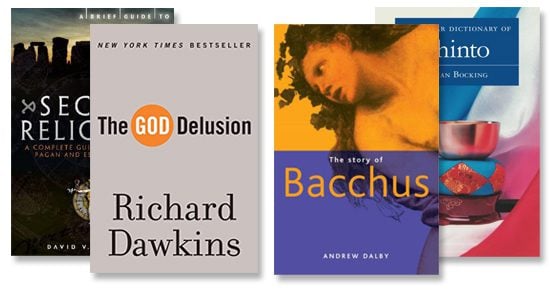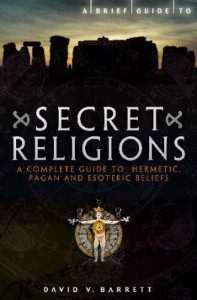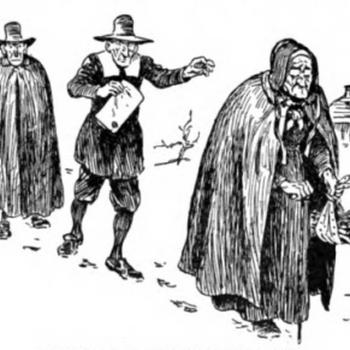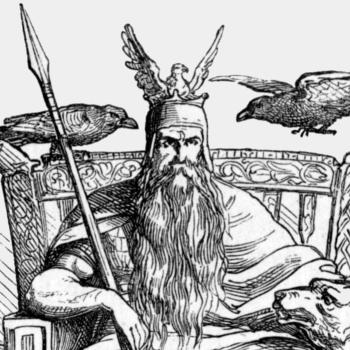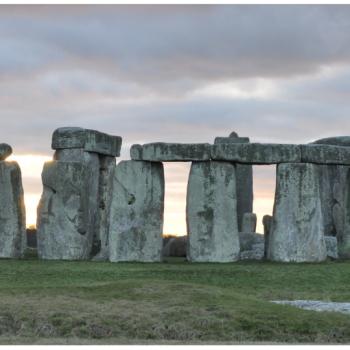A large variety of beliefs, from secret esoteric traditions to atheism, are explored in this month’s reviews.
But which book will get Read Of The Month?
The full list of this month’s reviews is as follows….
- David V. Barrett, A Brief Guide to Secret Religions: A Complete Guide to Hermetic, Pagan and Esoteric Beliefs
- Richard Dawkins, The God Delusion
- C. Scott Littleton, Understanding Shinto: Origins, Beliefs, Practices, Festivals, Spirits, Sacred Places
- Andrew Dalby, The Story of Bacchus
David V. Barrett, A Brief Guide to Secret Religions:
A Complete Guide to Hermetic, Pagan and Esoteric Beliefs
(Robinson, 2011)
This was an impulse buy from the discount bookshop near my office (cheap books on esoteric subjects can be hard to come by). It describes all the weird and wonderful religions of the world, from the well-known to very obscure, including Theosophy, Kabbalah, the Rosicrucians, Satanism, and of course Paganism (although Paganism is hardly a “secret” religion these days). There’s a lot of historical detail, making this book a handy reference for those interested in the subject, although it is written in a somewhat bare-bones tone. I very much appreciate that the author has not been tempted to go down the sensationalist route, giving objective and neutral accounts of each religion, and being keen to stress that “esoteric” does not equal “cult.” His treatment of the various Pagan religions seemed accurate to me (and the author seems to have a particular affection for Paganism), and it’s great to see the history of how the Pagan Federation and other groups formed. I also liked Barrett’s celebration of Paganism as a diverse yet cohesive movement. There was one quote in particular that stuck with me, which I used in my previous post: “It is arguable that one of Neo-Paganism’s greatest strengths is its diversity. Although there is sometimes rivalry and mutual criticism between different traditions and groups of Neo-Pagans…there is probably far more commonality between them, and mutual support in the face of opposition, than there is between the many variations and offshoots of Christianity.”
Finally, I approve of his reminder to respect those whose beliefs may seem kooky to others: “It is important to accept that members of these [UFO] movements believe in the extraterrestrial origin of the messages given to them, just as Mormons believe in Joseph Smith’s golden plates, and Christians believe that the Creator of the Universe became a man of thirty-three years; they should not be dismissed as ‘UFO nuts.’ They are normal, intelligent people; their belief is genuine , and their religions are worth as much attention as all the others in this book.” Admittedly, much of the information found in this book could probably be found online; but it is good to see it presented in such an unbiased and balanced manner as it is in this book.

